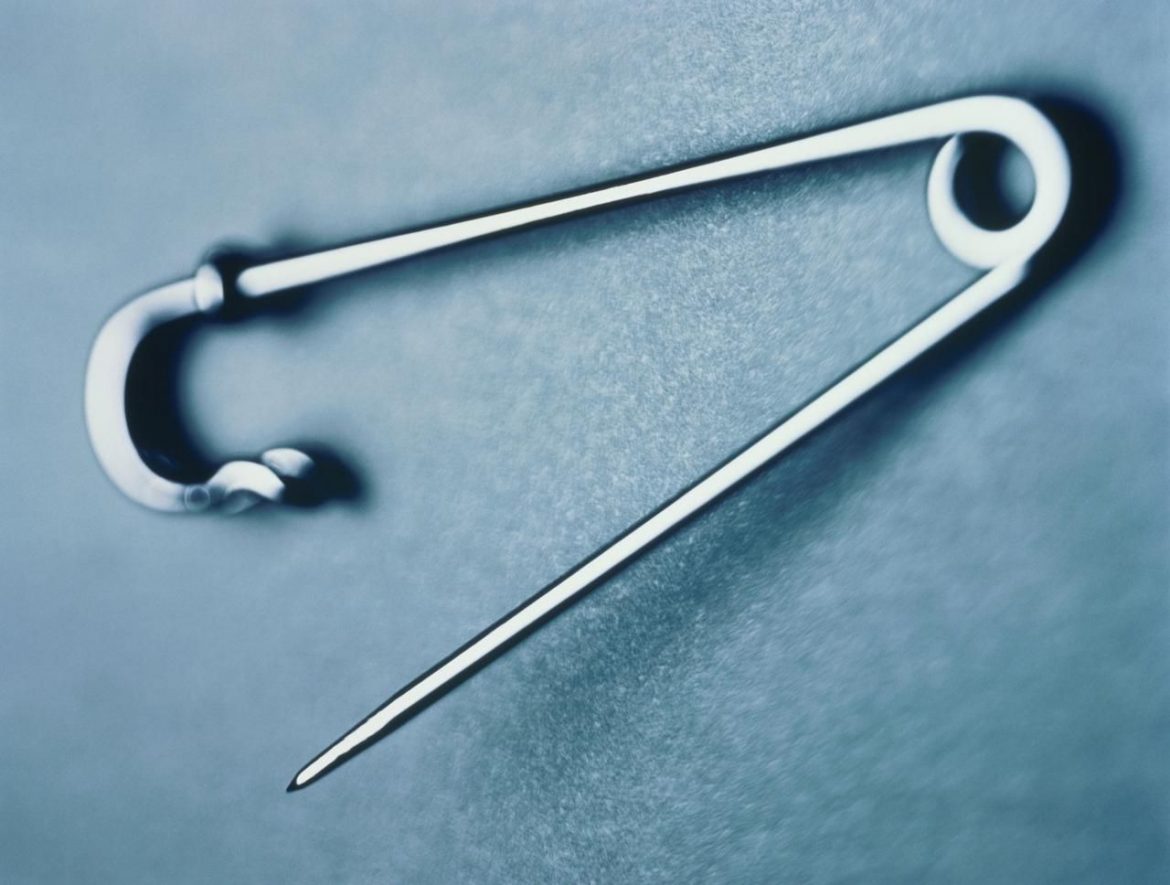- Sexual harassment is a pervasive problem in Pakistan.
- Women can take various steps to protect themselves from harassment, including avoiding isolated areas, being aware of their surroundings, and speaking out if they feel uncomfortable.
- It is also important for society as a whole to work towards ending the culture of silence around sexual harassment and promoting gender equality.
- The government can play a role by enforcing laws against harassment and creating safe spaces for women.
Women worldwide have used different tools to fight against harassers, including the ubiquitous safety pin.
Since its invention in 1849, women have used safety pins globally to hold clothing together or to deal with sudden wardrobe malfunctions. They have also been used by women as a weapon of choice to fight perverts in crowded spaces.
An incident in India a few months back saw women taking to Twitter to confess that they always carried a pin in their handbags or on their person and that the safety pin was their weapon of choice to fight perverts in crowded spaces. They have been used to draw blood and protect women from sexual predators.
Women have used whatever they have to defend themselves. For example, college students commuting in overcrowded buses and trams in the eastern city of Kolkata decades ago used their umbrellas.
Many also kept their nails long and sharp to scratch straying hands; others used the pointy heels of their stilettos to hit back at men who would take advantage of the crowd to press their genitals into their backs.
Also Read:
3 Female Pakistani PhD Holders Open Up About Online Harassment by Own Countrymen
Women globally have narrated harrowing experiences of sexual harassment on public transport, and how the fear and shame that most women feel emboldens molesters and makes the problem widespread.
Kalpana Viswanath, who co-founded Safetipin, a social organization working to make public spaces safe and inclusive for women, says that harassment of women is a global issue. She says that women start imposing restrictions on themselves and it denies them equal citizenship with men.
It has a much deeper impact on women’s lives than the actual act of molestation. Transport networks are magnets for sexual predators who use rush hours and crowded conditions to their advantage. Women have, therefore, resorted to using safety pins as a means of protection.
A Thomson Reuters Foundation survey of 1,000 women in London, New York, Mexico City, Tokyo and Cairo showed that “transport networks were magnets for sexual predators who used rush hours and crowded conditions to their advantage.” Women in these cities shared similar experiences to their Indian counterparts.
A woman from New York shared her experience, “I used my keys between my fingers. I just held them like I was going to punch somebody. But I thought that if someone grabbed me, I could scratch them with my keys.” Another woman from London narrated how she used her umbrella to push away an aggressive man on the Tube. Women are, therefore, taking action to protect themselves.
The use of safety pins is not limited to women. Men have also resorted to using them as a means of protection. A few years ago, a German woman created a hashtag, #safety-pin (safety pin), in the wake of the Brexit referendum to show solidarity with those who felt threatened by the outcome. The pin became a symbol of resistance against hate and bigotry. It was a way of saying “You are safe with me.” It spread globally, and many people used it to show support for minorities.
Read More:
Understanding Workplace Harassment Laws for Women in Pakistan
Share your thoughts in the comments below.
Stay tuned to WOW360.
